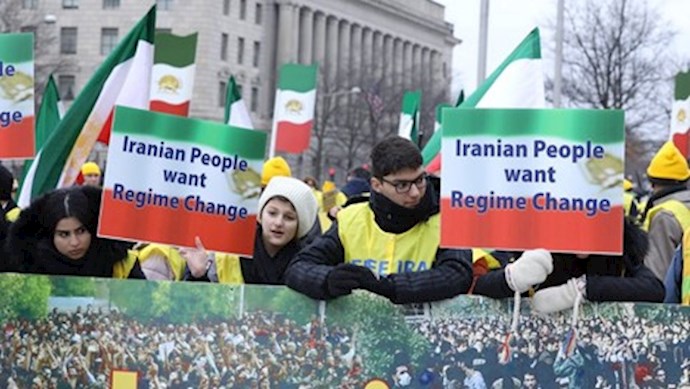Analysis by PMOI/MEK
Iran, April 3, 2021—Next week, the European Union will slap sanctions on eight Iranian militia and police commanders and three state entities over a deadly crackdown in November 2019, Reuters reported on March 31. This is the first time the EU has imposed sanctions on Iran for human rights abuses since 2013.
The individuals to be targeted include members of Iran’s Revolutionary Guard (IRGC) and Basij militia.
The Basij is the much-hated paramilitary force of the regime. The main role of the Basij is to preserve the mullahs’ rule at any cost through repressive measures against protests and demonstrations. The Basij played a prominent role in quelling the November 2019 protests, in which security forces killed over 1,500 protesters in the span of a few days.
This figure was first reported by the People’s Mojahedin Organization of Iran (PMOI/MEK) based by information obtained by its network inside Iran, which included the names and pictures of over 800 killed protesters in November 2019.
These statistics were later confirmed by Reuters on December 23, 2019 in a report that stated: “About 1,500 people were killed during less than two weeks of unrest that started on Nov. 1.”
On March 9, the U.N. special rapporteur on the situation of human rights in Iran, Javaid Rehman, presented a report saying Tehran used lethal force during the protests and chided it for failing to conduct a proper investigation or for failing to hold anyone accountable.
Since the November 2019 protests, the human rights situation in Iran has continued to decline. Security forces continue to intimidate and persecute people in the streets. Peaceful protests are responded to with force. Political prisoners, including protesters arrested during the 2019 protests, continue to be subjected to torture and inhumane pressure. And the regime continues to execute prisoners at a record level.
The reason for the uptick in human rights violations is the regime’s fear of the explosive state of the society. The brutal suppression of the November 2019 protest has only deepened the Iranian public’s hatred of the tyrannical rule of the mullahs, which has been symbolized by murder, torture, execution, and corruption since 1979.
On April 1, Hossein Zolfaghari, Security Deputy of the Iranian regime’s Interior Minister, acknowledged the regime’s worries about the repeat of nationwide protests in Iran and called the November 2019 protests the toughest year security-wise.
As the regime prepares for the next presidential elections, it is increasingly afraid of the possible eruption of another round of nationwide protests. And Iran’s conditions are very ripe for another uprising, especially as the people are fed up with the regime’s continued disregard for their lives and well-being and its repressive response to any outcry for freedom and decent living.
Therefore, it is only expectable that the regime will further increase its human rights abuses as it fears its survival in the extremely tense conditions of the society.
Sanctioning the mullahs over human rights abuses is therefore a positive and very necessary step. But it should be backed by further concrete steps to hold the regime to account for its crimes against the Iranian people. Human rights should be an inseparable part of any interaction with the Iranian regime. And one very important measure will be to refer the mullahs’ human rights abuses to the UN Security Council, including the massacre of protesters in 2019 and the mass execution of political prisoners in 1988. It’s about time for the EU and the west to stand with the Iranian people that have expressed their desire for regime change in five nationwide uprisings since 2018.





